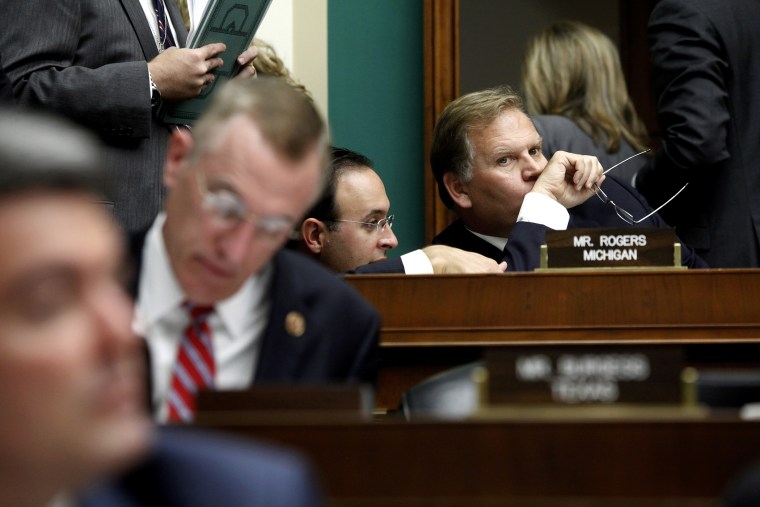When you don't know the government does it, it's not illegal.
That's the argument Republican House intelligence committee chair Mike Rogers of Michigan tried to make in an exchange with American University law professor Steve Vladeck during Tuesday's hearing on the National Security Agency. In an exchange first flagged by Techdirt, Rogers, a former FBI agent, told Vladeck, "You can't have your privacy violated if you don't know your privacy is violated." As long as NSA surveillance is secret then, no one's privacy is being infringed upon. Here's the exchange:
Rogers: I would argue the fact that we haven't had any complaints come forward with any specificity arguing that their privacy has been violated, clearly indicates, in 10 years, clearly indicates that something must be doing right. Somebody must be doing something exactly right.
Vladeck: But who would be complaining?
Rogers: Somebody who's privacy was violated. You can't have your privacy violated if you don't know your privacy is violated.
Vladeck: I disagree with that. If a tree falls in the forest, it makes a noise whether you're there to see it or not.
Rogers (astounded): Well that's a new interesting standard in the law. We're going to have this conversation... but we're going to have wine, because that's going to get a lot more interesting...
The Fourth Amendment protects the right of "the people to be secure in their persons, houses, papers, and effects, against unreasonable searches and seizures." There's no secrecy clause that states the people's rights are void if the government can violate them without getting caught.
The Supreme Court ruled in 1967 that warrantlessly wiretapping Charles Katz, who was using a public phone booth to facilitate his illegal gambling business, violated his Fourth Amendment right to privacy. The high court noted that the Fourth Amendment protects "people," not people's perception of whether or not their privacy has been violated. It's certainly true that one has to know their privacy has been violated in order to argue that in court, but that's not the same thing. Rogers may not be up on the latest news from February, when the Supreme Court dismissed a challenge to the FISA Amendments Act filed in 2008 on the basis that the plaintiffs couldn't prove they'd been spied because the law is secret.
Rogers' view is closer to that of infamous FBI chief J. Edgar Hoover, who felt he could blatantly violate the Constitution as long as he kept the bureau's surreptitious activities a secret. Worried yet? As chair of the intelligence committee, Rogers is the top House official responsible for making sure the intellience community doesn't cross the line.
